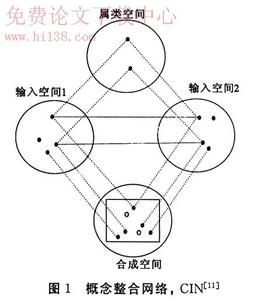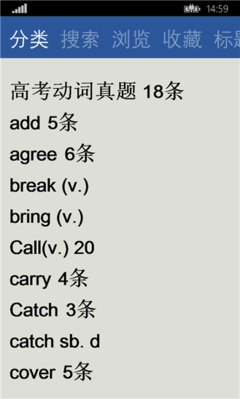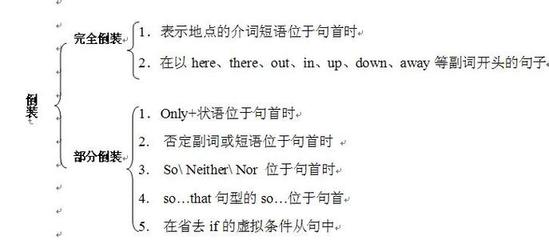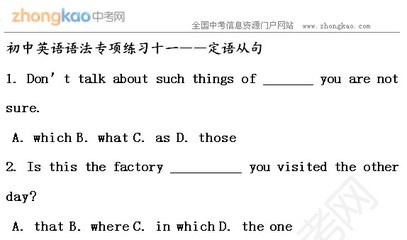短语动词是由动词加介词、副词或其他词构成的词组,其作用和动词差不多。有些短语动词相当于及物动词,有些则相当于不及物动词。
短语动词是有动词加介词、副词或其他词构成的固定词组,其作用和动词差不多。有些短语动词相当于及物动词,有些相当于不及物动词。动词短语_短语动词 -动词+介词
动词加at,for,from,into,of,to.with构成的短语动词总是动介型的。例如:
I don’t much care for television.我不很喜欢电视。(care for=like)

动词短语_短语动词 -动词+副词
动词加away,back,out,ahead,forward,aside构成的短语总是动副型的.例如:
She picked the book up.
She picked up the book.
动词短语_短语动词 -动词+名词+介词
这类动词短语只用作及物动词。名词前可加形容词说明程度,宾语总是位于介词之后,例如:
Keep an eye on the baby while I am out.我不在家时请照看一下小孩子。
动词短语_短语动词 -动词+副词+介词
这类动词短语相当于一个及物动词。例如:
please keep out ofher affairs.请不要介入她的事情。
动词短语_短语动词 -某些及物动词和不及物动词的含义比较
有些动词,既可作及物动词,也可作不及物动词,但用作“及物动词”是一种意思,而用作“不及物动词+介词”是另一种意思。例如:
She answered me.她回答了我。
She willanswer for his safety.她要为她的安全负责。
动词短语_短语动词 -英语的短语动词与动词短语有何区别
一、短语动词
短语动词由动词加上介词或副词小品词构成。比如:
1. 由动词break构成的常见短语动词有:
break away (from) 突然逃离;断绝往来,脱离;改掉,破除
break down (机器等)坏了;(计划等)失败;(谈话等)中断;(健康等)变坏;感情失去控制
break in 突然进来,强行进入;插嘴,打岔;训练,使适应
break into 强行进入;突然…起来;打断,插嘴;占用时间
break off 停止讲话;暂停,休息;(使)折断
break out (火灾、战争等)突然发生,爆发
Break Through突破;克服,征服;强行穿过;(太阳等)从云层里出来
break up 解散,驱散;(学校等)放假;结束,破裂;击碎;绝交
break with 与…绝交,与…决裂
2. 又如由bring构成的常用短语动词有:
bring about 引起,实现,导致
bring (a)round 使改变观点或看法;使苏醒;顺便把某人带来串门
bring back 送还;使想起,使恢复
bring down 击落;打死,打伤;使倒下;降低
bring forth 产生,引起,结果
bring in 收获;获利;介绍,引进;聘请;逮捕
bring off 从船上救出;设法做成
bring on 带来,引起;促使生长;帮助提高
bring out 取出,拿出;显示出,使出来;出版
bring over 说服,使改变(思想等)
bring through 使度过(困难,危机等)
bring together 使和解
bring up 提出,提起;抚养,培养;呕吐
这样的例子很多,欲需更详细的资料,可参考一本好的语法书,或上“英语语法网”查阅相关信息。
二、动词短语
动词短语由动词加上宾语或状语构成。如:
break a glass 打破一个玻璃杯
break one’s leg 摔断腿
break a window 打破窗户
break the rules 违反规定
break a bad habit 改掉坏习惯
break the world record 打破世界记录
bread easily 容易断
break to pieces 破成碎片
bring a book 带来一本书
bring sb sth 给某人带来某物(www.yygrammar.com)
bring sb great satisfaction 给某人带来极大的快慰
bring death andfamine导致死亡和饥荒
最近14年(含2008年)高考英语语法题详解
1. I can hardly hear the radio. Would you please __________? (NMET1995)
A. turn it on B. turn it down
C. turn it up D. turn it off
2. It is wise to have some money __________ for old age. (NMET1996)
A. put away B. kept up
C. given away D.laidup
3. She __________ his number in the phone book to make sure that she had got it right. (NMET1997)
A. looked up B. looked for
C. picked out D. picked up
4. Nobody noticed the thief slip into the house because the lights happened to __________. (NMET1998)
A. be put up B. give in
C. be turned on D. go out
5. We didn’t plan our art exhibition like that but it __________ very well. (NMET2001)
A. worked out B. tried out
C. went on D. carried on
6. We thought of selling this old furniture, but we’ve decided to __________ it. It might be valuable. (NMET2002)
A. hold on to B. keep up with
C. turn to D. look after
7. News reports say peace talks between the two countries __________ with no agreement reached. (NMET2003)
A. have broken down B. have broken out
C. have broken in D. have broken up
8. I’m planning to hold a party in the open air, but I can make no guarantees because it __________ the weather. (2001上海卷)
A. links with B. depends on
C. connects to D. decides on
9. Can you make a sentence to __________ the meaning of the phrase? (2002上海卷)
A. show off B. turn out
C. bring out D. take in
10. The engine of the ship was out of order and the bad weather __________ the helplessness of the crew at sea. (2003上海卷)
A. added to B. resulted from
C. turned out D. made up
11. ―It’s a good idea. But who’s going to __________ the plan?
―I think Tom and Grey will. (2000北京春)
A. set aside B. carry out
C. take in D. get through
12. Would you slow down a bit? I can’t __________ you. (2001北京春)
A. keep up with B. put up with
C. make up to D. hold on to
13. ―Smoking is bad for your health.
―Yes I know. But I simply can’t __________. (2002北京春)
A. give it up B. give it in
C. give it out D. give it away
14. His mother had thought it would be good for his character to __________ from home and earn some money on his own. (2002北京春)
A. run away B. take away
C. keep away D. get away
15. If you __________ any problems when you arrive at the airport, give me a ring. (2002上海春)
A.come up withB. set about
C. run into D. put aside
16. The idea puzzled me so much that I stopped for a few seconds to try to __________. (2003北京春)
A. make it out B. make it off
C. make it up D. make it over
17. Don’t mention that at the beginning of the story, or it may __________ the shocking ending. (2003北京春)
A. give away B. give out
C. give up D. give off
18. We're going to __________ with some friends for a picnic. Would you like to join us? (2004北京春)
A. get in B. get over
C. get along D. get together
19. He was in hospital for six months. He felt as if he was __________ from the outside world. (2004北京春)
A. cut out B. cut off
C. cut up D. cut through
20. In some western countries, demand for graduates from MBA courses has __________. (2004广西卷)
A. turned down B. turned over
C. fallen down D. fallen over
【答案与详解】
1. C。turn up 调大(收音机、电视机等的)音量; turn on 开(收音机、电视机); turn down 调小音量; turn off 关掉。
2. A。put away 储蓄(钱以备用),教材上未出现过此意,因此当年只有21%的同学选对; keep up 维持、使…不下落;lay up储存某物。
3. A。look up(在书中)查寻; look for 寻找; pick out 挑选出; pick up 捡起、用车接(人)或搭客、便宜买到、得到、学会。
4. D。go out(灯、火等)熄灭; put up 举起、张贴; give in 屈服; turn on 打开(电视、收音机、水龙头等)。
5. A。work out 在课本中只出现过“计算出; 解答出”之意,但在本题中意为“结果是; 以某种方式发展”。句意为“虽然…但结果很不错。”try out 试验; go on 继续; carry on 继续下去。
6. A。教材中只学过“别挂电话”的 hold on。但句中 hold on to 意为“保留; 不放弃(所拥有之物) (=try to keep)”。句意为“我们曾考虑过卖掉这件旧家具,但我们现在已经决定保留它,它可能有价值。”keep up with 赶上; turn to转向、求助于。
7. A。教材中 break down 作“分解”讲,但在本题中却意为“失败”。break out 爆发; break in 闯入、插嘴; break up 分解、驱散、结束。
8. B。depend on 取决于、依赖; link with 联系着; connect to 连接; decide on 决定(做某事)。
9. C。bring out 使清楚、说明; show off 炫耀(贬); turn out 露面; take in 吸入。
10. A。add to 增加(=increase); result from 产生于(某原因); turn out 生产出、培养出; make up 编造、组成。
11. B。carry out 实现或完成(计划、任务等)、进行(实验); set aside 搁置; take in 吸收; get through with sth 完成某事。
12. A。keep up with sb 跟上某人; put up with sb 忍受或容忍某人; make up to sb 讨好或巴结某人; hold on to sb 抓住某人。
13. A。give up 放弃、戒掉; give in 投降(不可接宾语); give out 分发; give away 赠送、泄露。
14. D。get away 离开、逃脱、逃避; take away 带走(后面要接宾语); keep away from 不要靠近。run away from home 离家出走。
15. C。run into 遭遇(困难或问题)、偶遇某人; come up with 找到答案、提出办法; set about 开始(某事); put aside 把某物放到一边、储存。
16. A。make out 理解、弄明白; make off 匆匆逃走; make up 虚构; make over 改变。
17. A。give away 泄露; give out 分发; give up 放弃; give off 散发。句意为:别在故事开头时提这件事,否则会把出人意料的结尾透露出去。
18. D。比较:get together 意为“欢聚”; get in 意为“进入,收获,陷入”; get over意为“爬过,克服,熬过”; get along with意为“与……相处”。
19. B。比较:cut off 意为“切断,剥夺”,与语境符合。cut out意为“切掉,裁剪出”,cut up意为“切碎,歼灭”,cut through意为“刺穿,抄近路”,均不符合语境。
20. C。fall down倒下、跪拜、下降; turn down拒绝、关小; turn over打翻、翻身、反复考虑、营业额达到; fall over跌倒。
 爱华网
爱华网



